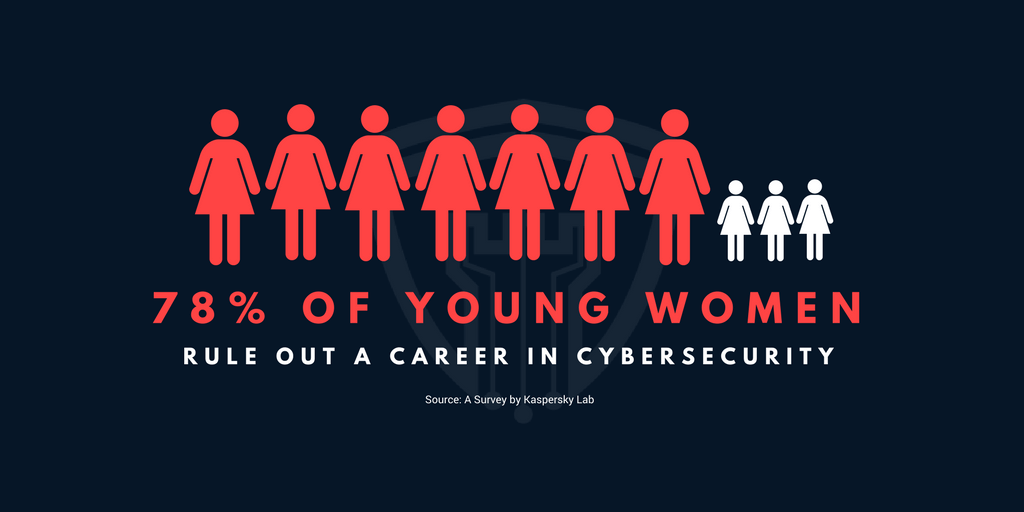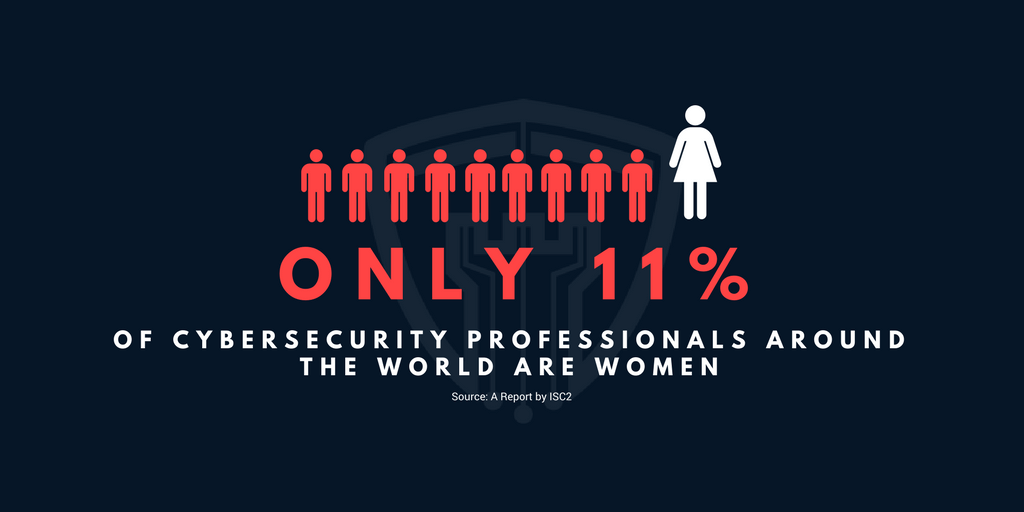We are living in times where it seems very obvious to want certain situations. One of them is the presence of women in all professional fields. Who would not agree that such representation should be fair and equal with respect to the opposite gender?
Perhaps nobody would oppose it in public, but the reality is different. Women are not balanced in all professional environments, and more and more cases are reported that reflect the way they are rewarded for their work is not fair.
The studies we have looked at prove that statement.
The first, carried out by Kaspersky Lab, places special emphasis on the problem at its root: the education of young people. This was carried out through an online survey of more than 4,000 young people from countries such as the United Kingdom, France, Germany, Italy, Spain, the Netherlands, Israel and the United States. The participants were between 16 and 21 years old at the time they were asked.
The second study we have chosen to analyze the situation of women in the field of cybersecurity is called “Global Information Security Workforce Study”. It was carried out between June and September of 2017 by more than 19,000 people from 170 countries, so it could be the largest survey ever conducted of cybersecurity professionals. It deals with issues such as the wage gap or the low representation of women in positions of responsibility.
The most interesting data is described in the following lines.
The problem when women are young: lack of feminine references and interest

Thanks to the survey carried out by Kaspersky Lab, we discovered that the majority of young people (72%) have their professional future decided when they reach 16 years old.
It emphasizes that at this time, men are more inclined to study pure sciences such as mathematics (49% versus 36% of women) or to choose technological careers (21% of men versus 7% of women).
Why do women not decide to develop their professional career in the field of cybersecurity?
69% of young women have never met someone who works in cybersecurity, which means that there is a lack of feminine references. Moreover, 45% of respondents are unaware of cybersecurity careers, and this is a challenge for companies in the sector when it comes to attracting talent.
For young women who are considering computer security as a job, 57% reject it due to lack of programming experience. This hints at the mistaken idea that in this field only people who know code are needed, when actually cybersecurity organisations need different professional profiles.

There is also a negative association in this field, and it is that among young people who know the profession, 1/3 consider that it is for “geeks” or “nerds”, terms that are often used in a derogatory way to talk about the enthusiasts of the technologies.
In addition, 1/6 of the young women surveyed think that cybersecurity could be boring. 52% of young women directly surveyed are not interested in computer science.
The result of all the above? That 78% of young women rule out a career in cybersecurity.
And what about young women who choose to develop their careers in the world of cybersecurity?
The study conducted by Kaspersky Lab has not touched upon the subject much due to the age of the respondents. However, it is interesting to note that 23% of them take into account a job that contributes to society. This is something that they can certainly find in a professional career in computer security.
Discrimination, the problem for women when working in cybersecurity

As we said at the beginning, the study carried out in 2017 by the Global Information Security Workforce Study covers a greater number of women from all over the world and shows how they perform their work in the field of cybersecurity.
The first data that shakes us is well known in the sector: 11% of cybersecurity professionals around the world are women.
Based on this data, 51% of the respondents said they had suffered some type of discrimination. In comparison, only 15% of men indicated that they have suffered discrimination at work.
Although 87% of women who have suffered discrimination claim that it has been “unconscious”, we wondered if this discrimination was the main reason why women do not come close to occupying half of the positions in cybersecurity.

On the one hand, there is discrimination when it comes to accessing positions of responsibility. In the C-Level, profiles with responsibilities such as team management, there is one woman for every four men. The data is the same when we look at executive management profiles. However, the gap grows in the top brass, finding one woman for every nine men.
On the other hand, there is wage discrimination. Women who work in the field of cybersecurity are paid less than men depending on the type of position. On average, a cybersecurity professional is 3% less paid than her colleagues.
Finally, it is alarming that 28% of women respondents say that their opinions are not taken into account in the workplace.
Solutions: hacking diversity
It is likely that many women who perform their work within the IT sector will not find anything new anything in the previous lines.
It is also possible that professionals from other fields may report similar situations: the low representation of women; the difficulty for their opinion to be taken into account; or the difference in salaries with respect to their peers, among others issues.

Against this background, we have extracted from the studies the solutions that we can all carry out and that can be extrapolated to the professions where we must make women visible in order to attract talent.
- Awakening interest in IT careers from school and family environment: despite them being a minority, today we can find examples of professional women in the IT sector and specifically in cybersecurity. Publicising their work in schools can be a way to inspire young women who are in the process of opting for a professional future.
- Changing the perception of the sector: technical skills are not a priority, but critical thinking and creativity are needed when it comes to solving problems. Therefore, it is not always necessary to know how to code or to have studied a technical career to opt for the field of cybersecurity.
- Promoting equality policies and promoting internal promotion: recognition is a fundamental part to fulfill workers in the workplace. Encouraging women to advance in their careers through training and internal promotion can be a way to attract and maintain talent.
This is what the data says so far, but what do women who already work in cybersecurity say? Find out in this interview we have done with Silvia Barrera (Inspector of the National Police in Cybersecurity) and Sheila A. Berta (Security Analyst at ElevenPaths Argentina):
- The keys to get the ISO 27001 certification - November 14, 2019
- Managed Security Service – MSSP - October 23, 2019
- DDoS Attacks – An In-Depth Guide - September 12, 2019








Comments are closed.